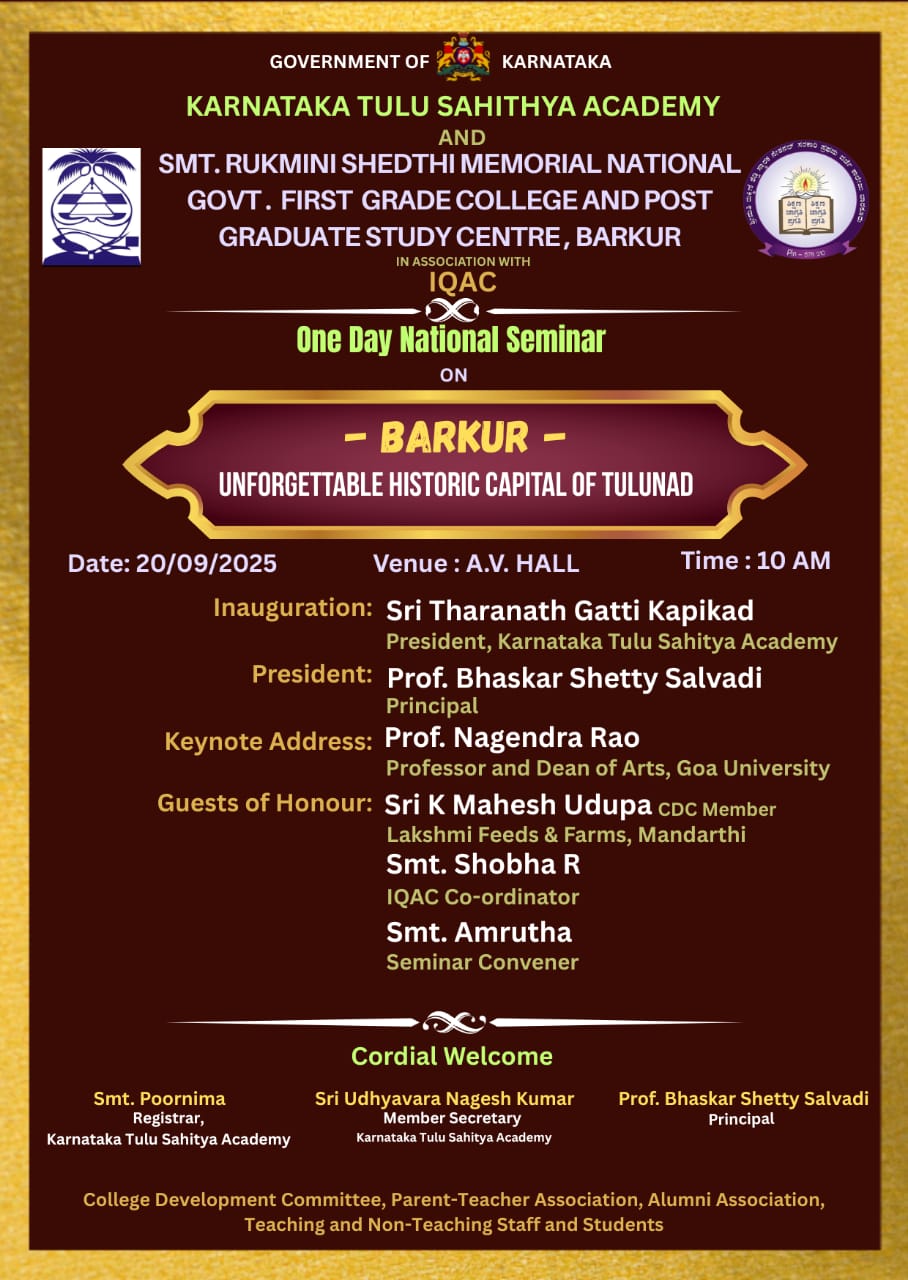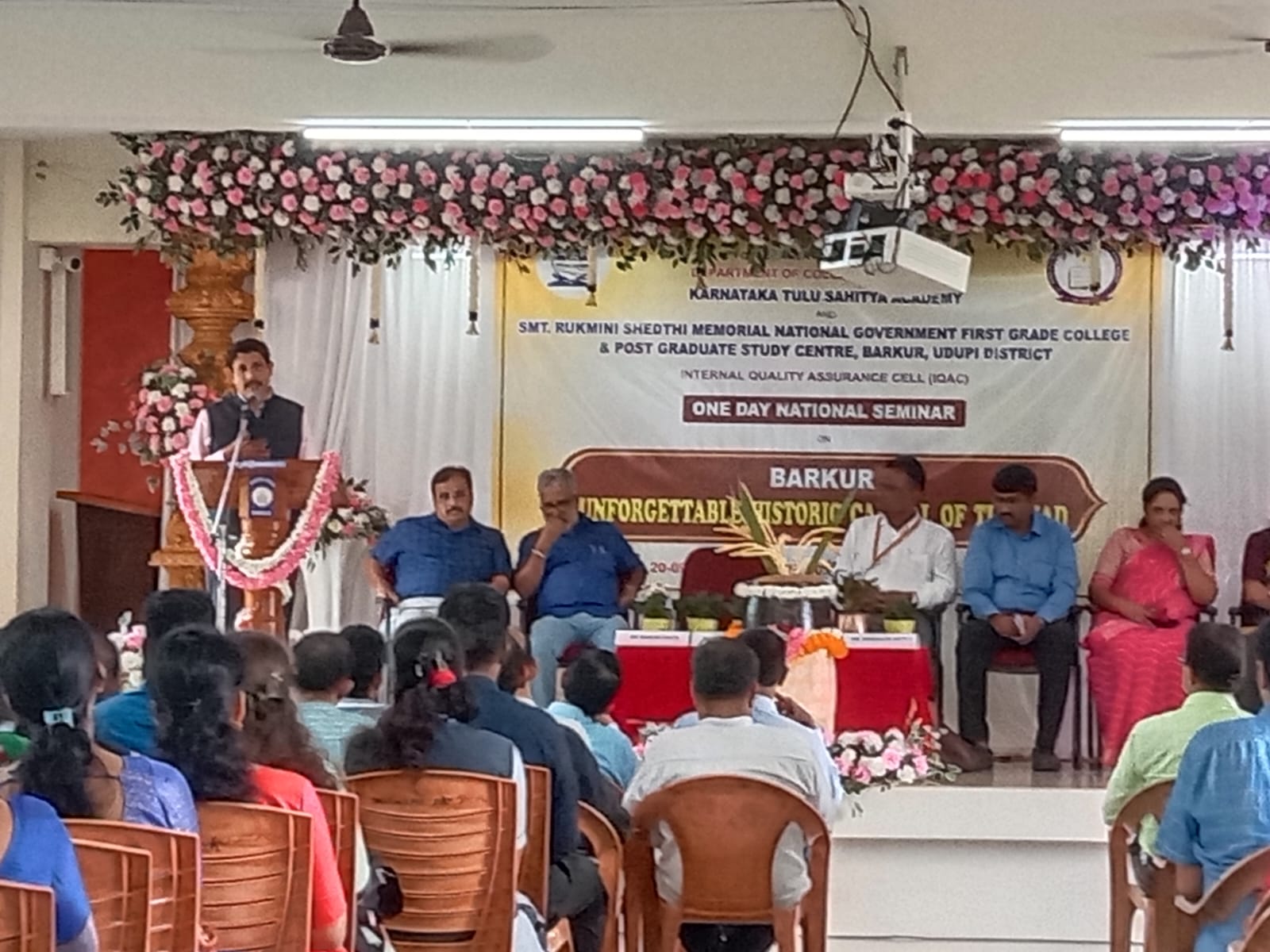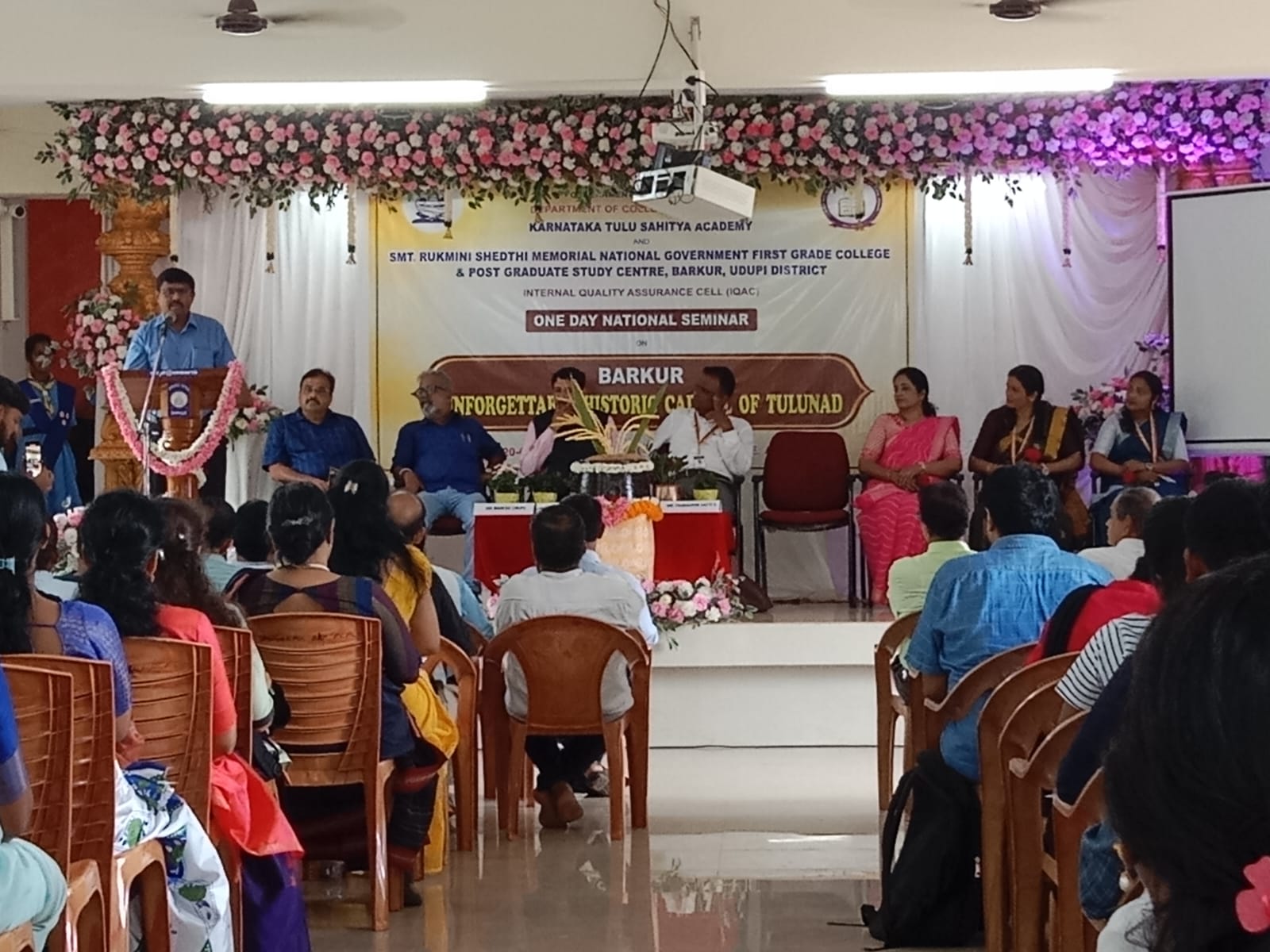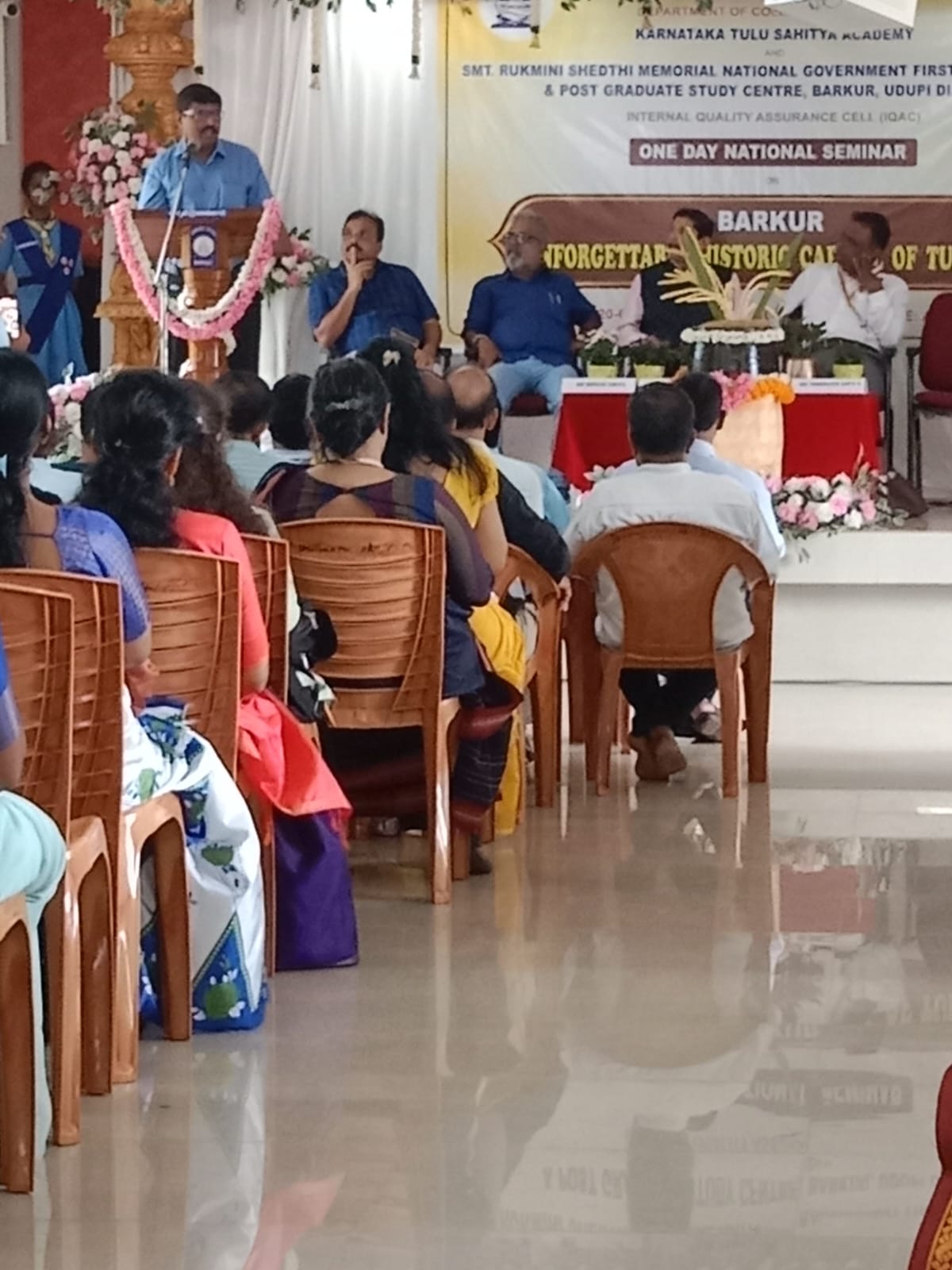News : Prof. Archibald Furtado, Pics : Subhanu, Barkur
The Karnataka Tulu Sahitya Academy, in partnership with Smt. Rukmini Shedthi Memorial National Government First Grade College and Post Graduate Study Centre, Barkur, and its Internal Quality Assurance Cell (IQAC), successfully conducted a one-day national seminar titled "Barkur – Unforgettable Historic Capital of Tulunad" on Saturday, September 20th, 2025. The event took place at the College A.V. Hall, drawing together scholars, academicians, students, and dignitaries to explore the rich historical legacy of this ancient Tulunad capital.

The seminar commenced at 10:30 AM, running thirty minutes behind the original schedule, yet maintained strong attendance and engagement throughout the proceedings. The gathering represented a diverse cross-section of the academic community and cultural enthusiasts, all united by their interest in preserving and understanding Barkur's historical significance.
Sri Tharanath Gatti Kapikad, President of the Karnataka Tulu Sahitya Academy, formally inaugurated the seminar with a comprehensive address on Barkur's cultural, historical, and literary heritage. His presentation emphasized the Academy's ongoing mission to preserve and promote Tulunadu's language, traditions, and cultural legacy. Kapikad particularly encouraged students to develop systematic and scientific approaches to studying their local history, urging them to contribute actively to preserving and restoring historical authenticity.

Prof. Bhaskar Shetty Salvadi, Principal of the host college, delivered the presidential address, focusing on the critical importance of interdisciplinary research in historical studies. His remarks highlighted how academic engagement can effectively rediscover and transmit Barkur's glorious past to future generations, ensuring continuity of cultural knowledge.

Prof. Nagendra Rao, Professor and Dean of Arts at Goa University, delivered the keynote presentation, providing scholarly insights into Barkur's historical significance. His address covered the region's political, cultural, and maritime legacy, with particular attention to the 'Donors of Barkur.' Prof. Rao encouraged students and researchers to pursue deeper academic inquiry into the area's hidden historical treasures, supporting his presentation with extensive references to inscriptions discovered in and around Barkur.

Sri K. Mahesh Udupa, CDC Member and representative of Lakshmi Feeds & Farms, Mandarthi, attended the seminar and expressed appreciation for the chosen theme. He assured continued support for the institution's academic and cultural initiatives, demonstrating community commitment to educational advancement.
The event's successful execution was credited to key organizers including Smt. Shobha R, IQAC Coordinator, and Smt. Amrutha, Seminar Convener, who ensured meaningful academic deliberations and smooth session management. Additional support came from Smt. Poornima, Registrar of the Karnataka Tulu Sahitya Academy, and Sri Udyhavara Nagesh Kumar, Member Secretary of the Academy, who extended warm welcomes to all participants.
The seminar benefited from broad-based participation across multiple stakeholder groups. The College Development Committee, Parent-Teacher Association, Alumni Association, faculty members, and students all contributed to making the event a truly collaborative effort. This diverse participation emphasized the community-wide interest in preserving and understanding local historical heritage.
The seminar provided a valuable platform for revisiting and discussing Barkur's enduring legacy as a historic capital of Tulunad. Through thought-provoking sessions and interactive discussions, the event successfully enriched both the academic community and general public understanding of the region's historical significance. The scholarly presentations offered new perspectives on maritime history, political development, and cultural evolution in the region
According to the original schedule, three additional discussion sessions were planned for later in the day, featuring learned guests and historians from across the district. These sessions were designed to provide broader regional context and additional scholarly perspectives on Tulunad's historical development.
The seminar represented a significant contribution to ongoing efforts to document, preserve, and celebrate the historical legacy of Barkur and the broader Tulunad region. By bringing together academic expertise, community support, and student engagement, the event successfully advanced understanding of this important historical center while inspiring continued research and preservation efforts. The collaborative nature of the organizing effort and the quality of scholarly presentations established this seminar as a model for future academic initiatives focused on regional historical studies.
